Note: This story contains graphic images. Discretion is advised.

From a massive storm that knocked over a construction crane to a groundbreaking investigation into the safety of drinking water to thousands taking climate change into their own hands, there were several news stories that helped to define Nova Scotia in 2019.
Here’s a look back at some of the biggest stories that mattered to Maritimers over the past 12 months.
January
Truck crashes into Lower Sackville Circle K, injuring three
2019 started off with a bang. Literally.
A bizarre string of events on a cold Thursday afternoon in January resulted in a truck crashing into the Circle K store in Lower Sackville, N.S.
Three people, including the driver, were injured.
READ MORE: Suspect faces slew of charges after machete carjacking leads to police chase, gas station crash
David Raymond Farrell was charged in the days that followed. Before the crash, police allege he drove on the wrong side of Highway 101 during rush hour, crashed his vehicle, carjacked the truck with a machete and then fled from police.
Farrell was later found not criminally responsible for his actions.
String of suicides on Eskasoni First Nation
To start 2019, Eskasoni First Nation was hit with a mental health crisis.
According to Chief Leroy Denny, multiple suicides were reported on the reserve throughout January.
Denny said the deaths underscored Eskasoni’s, as well as the surrounding Cape Breton community’s, dire need for more health-care resources.
At the time, Premier Stephen McNeil said he had been in contact with Denny and that government would look to enhance funding already allocated to the community’s crisis call centre.
February
Seven children die in Spryfield fire
On Feb. 19, 2019, an unthinkable tragedy in Halifax made headlines around the world.
Seven children who came from Syria perished in an overnight fire that swept through their home in Spryfield. Their father, Ebraheim Barho, suffered severe burns trying to save them.

The Barho family had come to Canada in 2017 as privately sponsored refugees after fleeing their war-torn country.
The community came out in droves to support the family, with a GoFundMe page raising over $725,000.
Halifax Fire say they are unable to determine what caused the blaze.
Acadia/St. Francis Xavier hockey brawl

A brawl during a university hockey game saw 13 players and two coaches being given automatic suspensions after one player allegedly made a derogatory comment related to a sexual assault survivor.
The fight between players on the Acadia Axemen and St. Francis Xavier X-Men happened in Wolfville on Feb. 2.
Atlantic University Sport executive director Phil Currie said the incident went “well over the line” of chirping.
March
Glen Assoun’s wrongful conviction overturned
After almost 17 years in prison, Glen Assoun is a free man.
On March 1, Assoun was acquitted of the murder of his ex-girlfriend after a two-decade struggle to prove his innocence.

Justice Minister David Lametti quashed the conviction, saying Assoun should be granted a new trial because he was a victim of a miscarriage of justice.
Assoun has called for an inquiry into what led to the wrongful conviction.
String of suspicious persons reports at Victoria General Hospital
A Global News exclusive report found that the QEII Health Sciences Centre was reviewing its security protocols after a suspicious man was reportedly found inside patient rooms in March.
Security reports obtained by Global News through freedom-of-information requests and court documents found that Shannon David McInnis was a frequent visitor to the Victoria General and Halifax Infirmary sites.
The security reports alleged the suspicious person was in different areas of the hospital, wearing hospital scrubs or inside patient rooms.

McInnis is facing a long list of charges, including committing an indecent act and theft.
The Nova Scotia Health Authority says all hospital staff have been given a refresher on security protocols, doors have been checked over and hourly patrols have been stepped up.
April

Get daily National news
Woman with cancer calls out premier
In April, Inez Rudderham had a message for Premier Stephen McNeil, and she wanted to make sure he heard it.
In a tearful and emotionally charged video, Rudderham, who went undiagnosed with Stage 3 anal cancer for two years, called out McNeil for not declaring a health-care crisis.
READ MORE: N.S. woman with cancer challenges premier on doctor shortage
The video on Facebook was shared over a million times, with a crowdfunding campaign for Rudderham raising over $25,000.
McNeil later agreed to meet with Rudderham to discuss her treatment.
GRABHER licence plate saga reignites
A Halifax man’s battle to have his last name on his licence plate ignited a heated debate about freedom of expression.
In 2016, Lorne Grabher had his personalized licence plate revoked after the province’s Registrar of Motor Vehicles received a complaint, claiming it promoted hatred toward women.
Grabher filed a civil suit to have his licence plate reinstated, which was heard in Nova Scotia Supreme Court in April.
The judge reserved his decision in the case.
May
Rugby cancelled in Nova Scotia
Don’t mess with rugby players.
That’s what the province quickly learned after the Nova Scotia School Athletic Federation (NSSAF) opted to cancel high school rugby.
The decision came after the NSSAF conducted a “thorough review of incident report data provided by the School Insurance Program.”
But backlash to the decision was prompt and loud, with players young and old demanding the sport be brought back.

A day later, provincial Education Minister Zach Churchill called for high school rugby to be reinstated, saying the NSSAF “made the decision without appropriate consultation with school communities.”
June
Corey Rogers Trial
Two Halifax Regional Police special constables were on trial in June for their role in the death of Corey Rogers.
The 41-year-old was found dead in a Halifax jail cell on June 16, 2016 after a spit hood caused him to suffocate on his own vomit.
Const. Daniel Fraser and Const. Cheryl Gardner were later charged with criminal negligence causing death, with the Crown arguing Rogers’ death was caused by the constables’ failure to follow basic safety practices.
In November, a 12-member jury found them both guilty.
July
Triston Reece homicide
Well-known football player Triston Reece was shot dead on July 26, marking the first homicide in the city in 2019.
Reece, who competed and played for Football Nova Scotia and Citadel High School, was shot along Scot Street in the city’s west end.
He was sent to hospital with life-threatening injuries, where he later died.

On Nov. 25, Kaz Henry Cox was charged with first-degree murder in Reece’s death.
Sobeys announces plastic bag ban
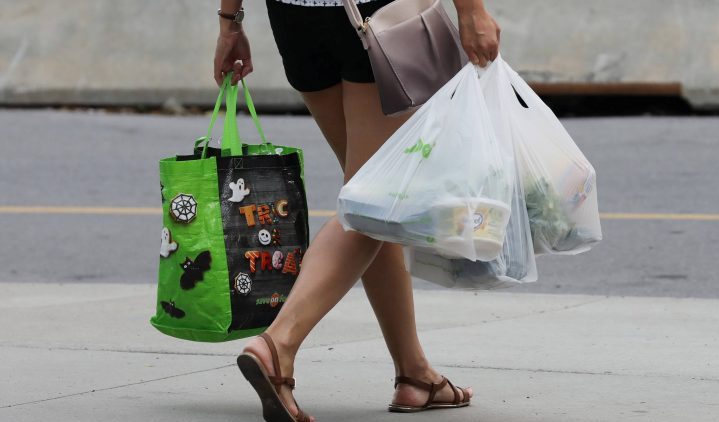
It won’t be long until the renowned plastic Sobeys bag will be no more.
On July 31, the grocery store giant announced plans to remove all plastic bags from its 255 locations across Canada by the end of January 2020.
Sobeys is calling the decision the first step in “removing unnecessary plastic from all retail.”
August
Anti-immigration billboard sparks anger
A billboard calling for Canadians to “say NO to mass immigration” that was installed along the Bedford Highway had many wondering how the ad was approved in the first place.
The People’s Party of Canada (PPC) billboard was installed overnight, but many called for its immediate removal.

The PPC said it had nothing to do with the billboard’s installation but declined to seek its removal.
The billboard was removed three days later.
CFL to the Maritimes
The discussion around whether the Canadian Football League should come to Halifax heated up in August, as the league hosted a regular-season game in the Maritimes.
The game between the Toronto Argonauts and the Montreal Alouettes was held at Croix-Bleue Medavie Stadium in Moncton on Aug. 25.
The controversy surrounding whether council should commit funds to build a stadium in Halifax was a hot topic of discussion throughout the year.
In December, the city voted 10 to seven in favour of a one-time $20-million contribution toward a stadium’s construction, provided certain conditions are met.
September
Hurricane Dorian
Hurricane Dorian, the worst storm to hit Halifax since hurricane Juan, made landfall in the city on Sept. 7, uprooting century-old trees and causing damage that would end up costing millions.
Dorian wreaked havoc on the Bahamas and had just enough juice to reach the Maritimes as a post-tropical storm. Winds reached 157 kilometres per hour and up to 190 millimetres of rain fell.
The storm resulted in electricity outages to over 400,000 Nova Scotia Power customers, with some not having their power restored for over a week.
Several hundred Canadian Forces personnel were called in to help restore electricity, clear roadways and evacuate residents in flooded areas.
The storm resulted in the toppling of a 30,000-kilogram crane, which resulted in evacuation orders being issued and the province issuing a state of emergency to ensure its safe removal.
The transportation department later said it cost the government at least $2 million to remove the crane in full, which took over a month to complete.
Investigation into unsafe Halifax construction sites
A Global News investigation uncovered what appeared to be immediate, life-threatening risks on some Nova Scotia construction sites.
In the summer, Global News spent hours quietly filming Halifax-area construction sites following complaints from workers who say safety violations are rampant in the industry.
Sources with expertise in construction health and safety said the footage contains dozens of occupational health and safety concerns.
Workers said that fear was a factor in their silence on hazards that sometimes put their lives at risk.
As a result of the investigation, three Halifax-area contractors have been reprimanded for operating unsafely on construction sites earlier this month.
For more on the investigation, click here.
October
Federal election
Nova Scotia didn’t see the red wave of 2015, but it was pretty close.
The 43rd general election saw the Liberals retain 10 of 11 seats in the province as Justin Trudeau won his second straight term, this time with a minority government.
The only seat won by the Conservatives was in West Nova, where former MLA Chris d’Entremont narrowly defeated Liberal Jason Deveau.
In 2015, the Liberals took all 32 Atlantic Canadian seats. This election saw them lose six of those seats.
Climate changes protests
Much of 2019 will be remembered for millions of people around the world taking climate change into their own hands.
Tens of thousands of Maritimers added their voices to those around the world in calls for government officials to get serious about global warming.
A climate protest on Oct. 7 resulted in the arrest of 18 people and the temporary closure of the Macdonald Bridge. Police said the protesters were arrested after refusing to leave the premises within the police’s fixed time frame.
November
Tainted water investigation
In November, Global News, along with universities and 10 media organizations, began publishing a series of stories that revealed hundreds of thousands of Canadians could be consuming tap water laced with high levels of lead leaching from aging infrastructure and plumbing.
The reporting also found the drinking water in schools and daycares in several cities showed dangerous lead levels.
News outlets around the world picked up on the tainted water investigation, and it led to changes among municipal and provincial governments.
Street check apology
In November, Halifax Regional Police’s newly minted chief issued a formal apology to Nova Scotia’s black community over the practice of street checks.
Police Chief Dan Kinsella described the apology as a first step to “counter a series of historic wrongs,” adding that officers’ actions and words over the decades have caused “mistreatment and victimization.”
The apology came amid findings earlier this year that the police practice of randomly stopping people, collecting personal information and storing it was disproportionately targeting the black community.
December
Northern Pulp decision
In a historic decision, Premier Stephen McNeil announced that Northern Pulp mill must stop pumping wastewater into lagoons near an Indigenous community by Jan. 31, 2020, effectively shutting the facility down for good.
Layoff notices were handed to over 300 employees of the mill ahead of its closure.

A $50-million transition fund was set up by the government for those affected by the shutdown.
The mill, in operation since 1967 under various owners, has faced consistent criticism for its poor environmental record, as it has been dumping treated effluent into lagoons near Pictou Landing for decades.
Charges in Cassidy Bernard’s death
Over a year after her death, the family of Cassidy Bernard finally saw an arrest made earlier this month.
Dwight Austin Isadore was charged with second-degree murder in connection with the death of the 22-year-old, who was found dead in her home on We’koqma’q First Nation in October 2018.
Bernard’s five-and-a-half-month-old girls were found suffering from dehydration in a crib next to her.
Isadore, the father of the children, also faces two charges of abandoning a child.
Investigation into Nova Scotia hospital closures
A Global News investigation found that temporary emergency room closures in Nova Scotia are on the rise, with just under half shutting down at some point between 2014 and 2018.
Provincial government data analyzed by Global News showed most of the closures are unscheduled and can come with as little as half a day’s notice.
2018 saw a new high in the number of temporary emergency room closures at 1,504. That’s nearly double the number of temporary closures in the previous year and more than triple the number in 2016.
To read more, click here.
— With files from Global News staff and the Canadian Press


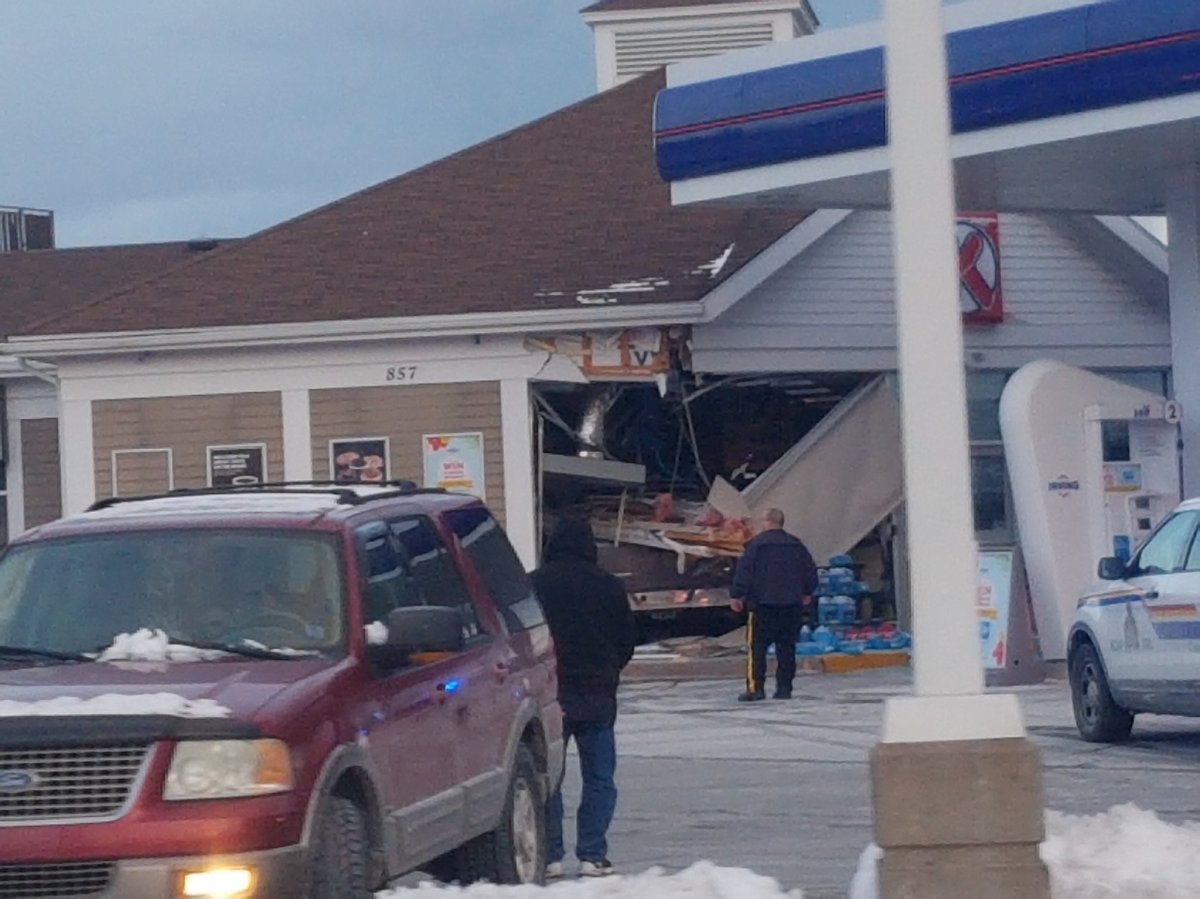
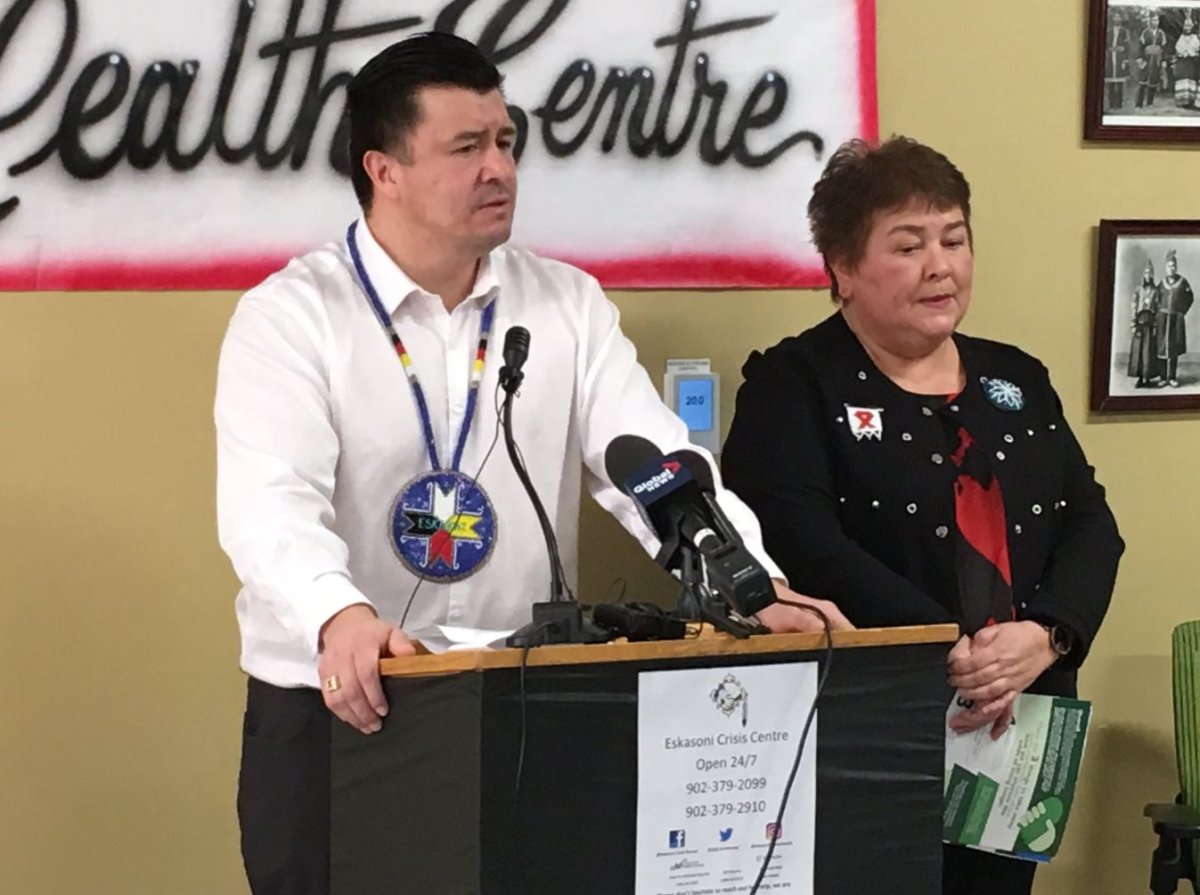

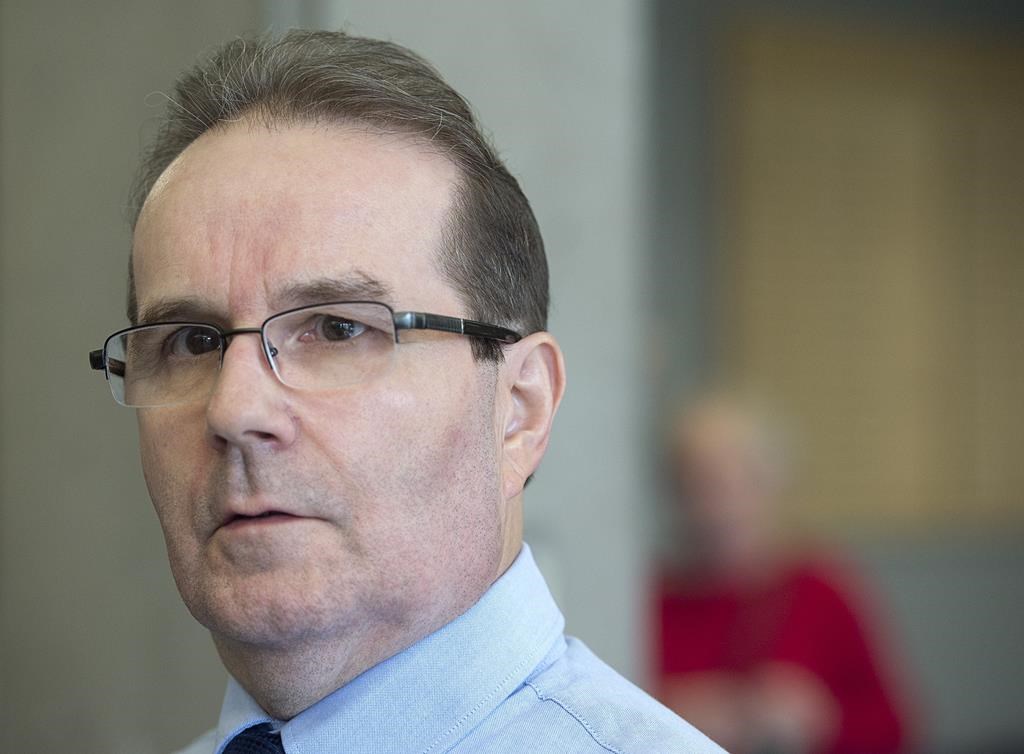
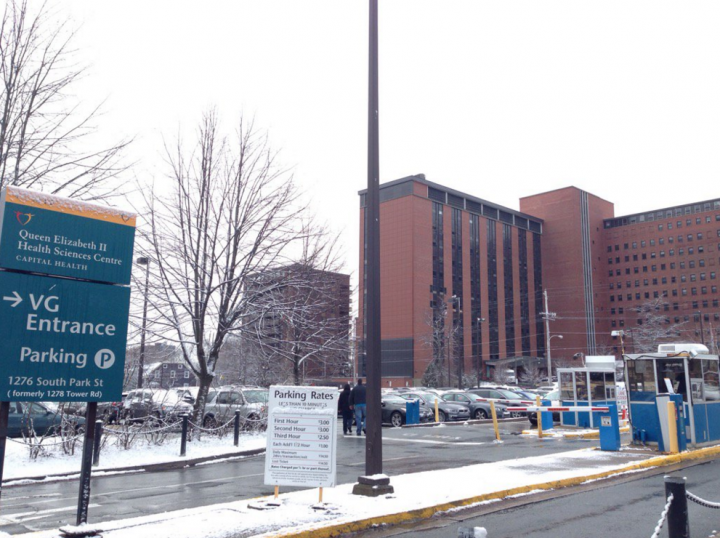


























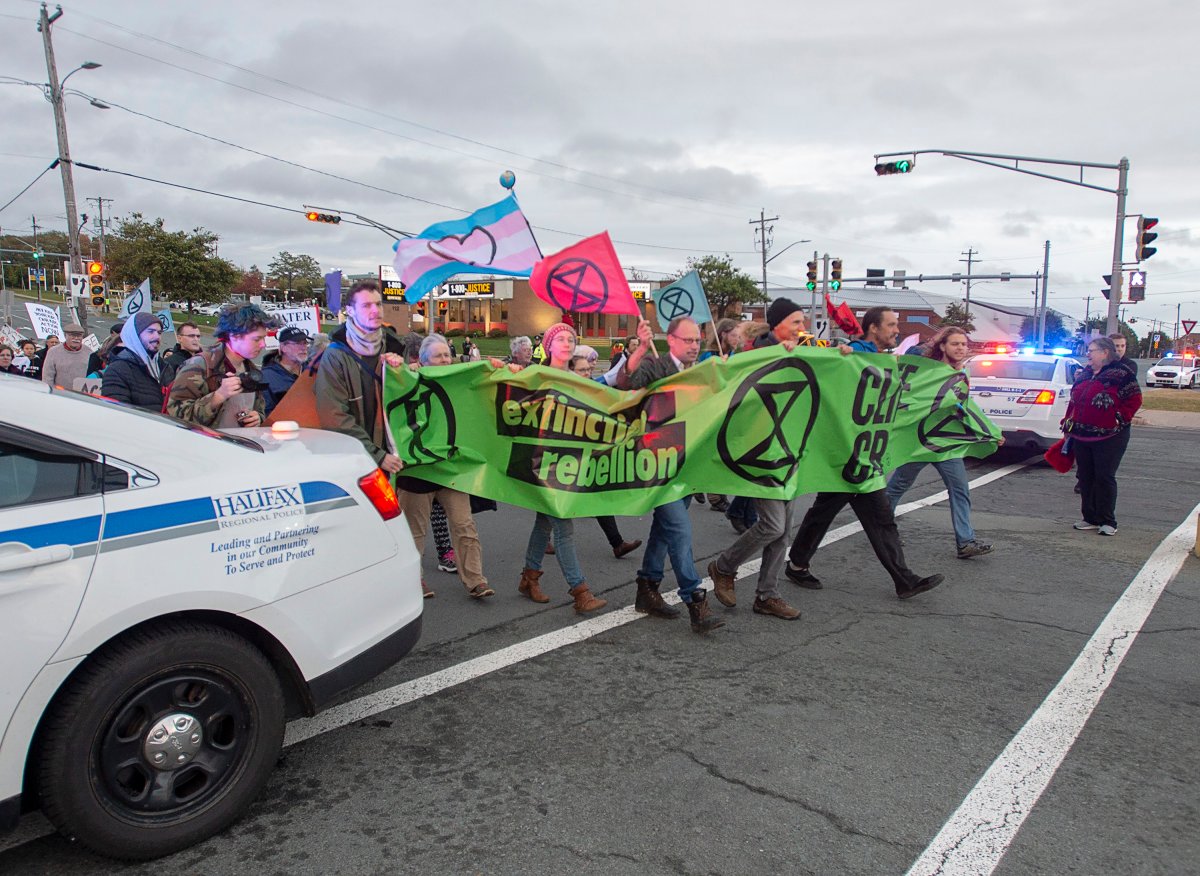









Comments